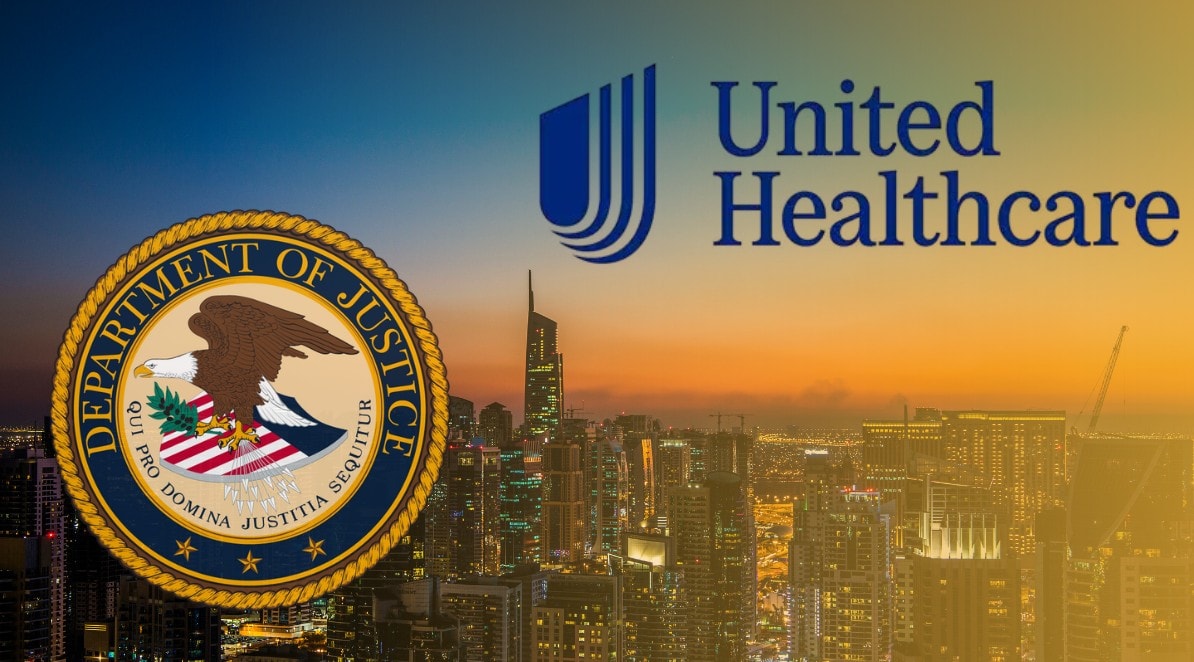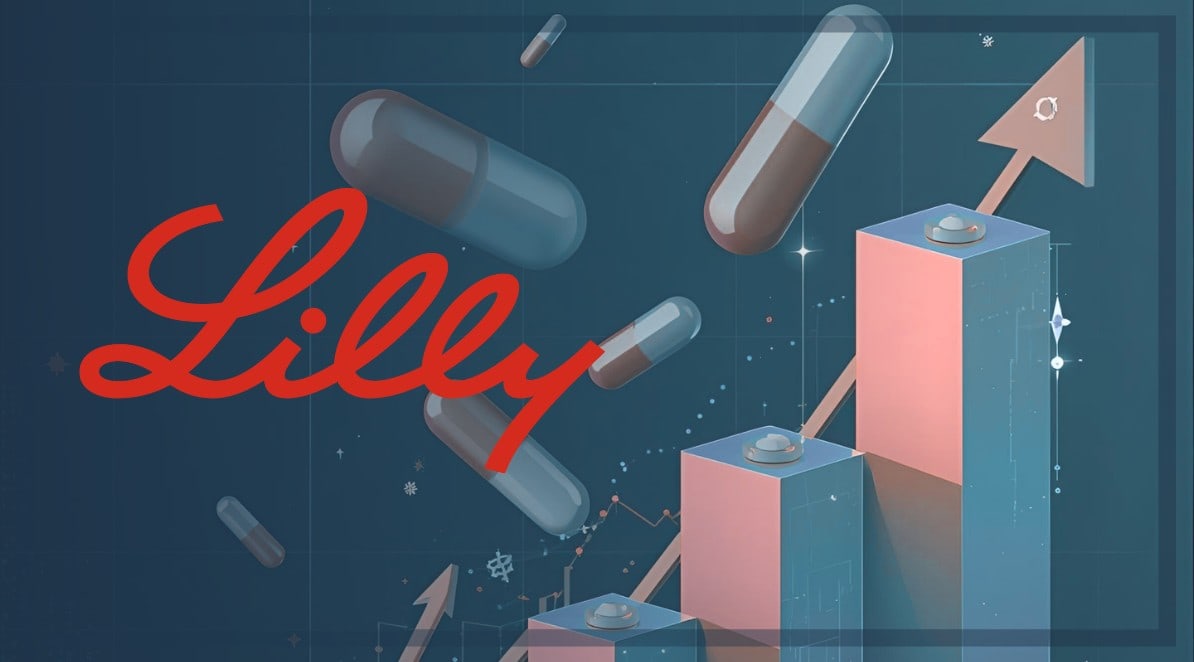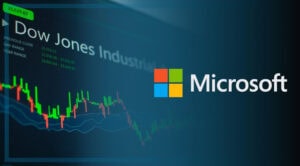UnitedHealth Under Fire: Why the DOJ’s Fraud Hunt Has Gone Silent in 2025
UnitedHealth’s market capitalization has experienced significant growth over the past 20 years. In fact, in November 2024 the company had a market cap of over $566 billion. A number that has diminished to $294 billion today. On August 2, 2025, the market cap dropped to a low of $216 billion, something that coincided with an earlier investigation into UnitedHealth by the U.S. Department of Justice (DoJ).
UnitedHealth had already responded to the DoJ on July 24, 2025. In an online statement it noted that “the company had a long record of responsible conduct and effective compliance. Independent CMS audits confirm that the company’s practices are among the most accurate in the industry, and, following a decade-long civil challenge by the Department (of Justice) to aspects of our Medicate Advantage business, a court-appointed Special Master concluded there was no evidence to support claims of wrongdoing.”
The statement did little to help. On July 24 the share price of UnitedHealth was $278, by August 2 it had plummeted to below $238.
How did UnitedHealth Become so Large?
The key to the success of UnitedHealth is how much exposure a consumer has to the brand. A consumer can be insured through UnitedHealth, see a doctor that works for UnitedHealth’s Optum Health business, and then have their prescriptions covered by UnitedHealth’s Optum RX. They could even have their medical bills paid by using UnitedHealth’s Optum payment technology. Patients can literally get everything they need from one company.
UnitedHealth served 50.1 million people in the U.S. in the third quarter 2025. According to most online reports, this makes UnitedHealth the largest U.S. health insurance firm. Ahead of companies like CVS, Elevance, Cigna, Centene, Humana, or HCSC.
The growth of UnitedHealth was partially in response to Obamacare, which required insurers to cover everyone. It led to several potentially high-profile mergers on the healthcare market. Aetna and Humana tried to merge, Anthem and Cigna also tried to merge. However, due to antitrust concerns these mergers failed. UnitedHealth did something else, it started to create ‘vertical integration’ through buying up smaller companies and building them into the Optum business.
$13B Gamble: Change Healthcare’s Antitrust Wake-Up Call
In 2022 this practice by UnitedHealth was highlighted when the healthcare giant tried to buy Change Healthcare. The deal was worth $13 billion which drew the attention of the DoJ. Ultimately, UnitedHealth fended off the challenge by the DoJ, but it was by no means the end of the story. Change Healthcare would be back, with a vengeance.
At the time UnitedHealth Group said Change Healthcare will become a part of the OptumInsight business “to provide software and data analytics, technology-enabled services and research, advisory and revenue cycle management offerings to help make health care work better for everyone.”
It’s this deal that led to UnitedHealth becoming a real healthcare titan. Acquiring Change Healthcare gave the firm a huge grip on the market. An opportunity, but aslo a threat.
Cyber Siege: Hacks That Exposed the Underbelly
On February 21, 2024, Change Healthcare suffered an enormous cyberattack. The attack made the company go offline, creating a backlog of unpaid claims. It left doctors’ offices and hospitals with substantial cashflow challenges. Additionally, tens of millions of Americans sensitive health information was leaked onto the dark web, despite a ransom being paid by UnitedHealth.
The attack has been blamed on the lack of multifactor authentication (MFA) potentially caused by outdated computer systems at UnitedHealth.
To make matters worse, the attack on Change Healthcare was escalated in April 2024, this time by a ransomware group called RansomHub, who claimed it had 4 TB of data it had stolen from the original attack including medical records.
UnitedHealth’s popularity took a big hit. Class action lawsuits started to appear en masse. And they weren’t just related to the hack. Shareholders were keen to point out that UnitedHealth may have failed to disclose that it engaged in a corporate strategy of denying health coverage in order to boost its profits.
The Murder of UnitedHealth CEO
In December 2024 UnitedHealth CEO Brian Thompson was murdered in New York. Acting U.S. Attorney Edward Y. Kim for the Southern District of New York said at the time that “Thompson was allegedly killed just because he held the position of chief executive officer of a health insurance company.”
Reuters later reported how the shooting also unleashed a social media storm of patient dissatisfaction and ire over the health insurance industry’s practices, adding to UnitedHealth’s other challenges. #KillTheInsuranceBillers memes were the least of the company’s worries.
Luigi Mangione, the man who committed the murder, has been in the news again recently. In October 2025, Mangione’s counsel filed in the Manhattan federal court accusing the DOJ and UnitedHealth execs of teaming up with the Trump White House to discredit their client and poison the jury pool alleging Mangione was “a pawn to further its political agenda.” They pointed to a Wall Street Journal scoop on UnitedHealth’s CEO Stephen Hemsley huddling with Trump’s chief of staff Susie Wiles over Medicare problems.
The New York Times revealed that the defense alleged political interference, citing Trump’s own comments calling Mangione “a pure assassin.” An Associated Press report confirmed that DoJ spokesperson Chad Gilmartin echoed Trump’s remarks online, prompting federal Judge Margaret Garnett to slap down Trump officials for blabbing guilt prematurely, violating gag orders. Court filings note UnitedHealth’s market value fell by roughly $63 billion after Thompson’s death.
Mangione’s actions were indefensible. But his case exposed a deeper truth: when rage meets politics in a system already accused of profiteering, violence becomes a grotesque reflection of public frustration.
Bombshell Billing: DOJ Digs into Medicare Millions
Things went from bad to worse in February 2025. Here is what we know. The DoJ has been digging into whether UnitedHealth systematically inflated Medicare diagnoses to trigger billions in government overpayments. Executives now say they are cooperating fully: according to a July regulatory SEC filing, the company is “complying with both criminal and civil requests” from the DoJ. They stress that being under investigation does not imply guilt.
The news rattled investors. At the time of writing, UnitedHealth’s stock was down by almost half (~$319, TradingView) compared with its late-2024 price ($610). Credit agencies had already signaled trouble: in early June, AM Best and S&P Global downgraded UnitedHealth’s outlook to negative, citing rising costs in its Medicare Advantage business.
Morningstar analyst Julie Utterback warned that the probes “highlight key risks,” including the potential for large fines or clawbacks of past payments.
A Bloomberg report confirmed the investigation had expanded to include Optum Rx, UnitedHealth’s massive pharmacy-benefit arm, and how it compensates its own physicians through Optum Health.
Interviews with former employees revealed that doctors were pressured to submit diagnoses for “lucrative” conditions, often without clinical justification. Wall Street Journal analysis pegged the potential overbilling windfall at $8.7 billion over 2019 – 2021.
Crash and Creep: Stocks Rebound, But Silence Deepens
UnitedHealth pushed back, saying it has full confidence in its practices. But a new Health Affairs study in November 2025 found UnitedHealthcare pays Optum-owned practices 17% more than outside practices, rising to 61% in markets where it has over 25% in market share.
Since the summer, the DOJ has been unusually quiet. No indictments. No public charging documents. Nothing.
In the meantime a whistleblower lawsuit was unsealed in September. It alleges UnitedHealth promoted unnecessary vascular tests to boost Medicare payouts, though the DoJ declined to intervene after a related settlement with the test’s manufacturer.
Kennedy’s Cure: Deregulation Derails the Probe?
The timing is conspicuous. We live in a moment when RFK Jr., a man who has spent decades opposing FDA-approved vaccines and promoting alternative medicine, now leads the Department of Health and Human Services (HHS). He oversees the very agencies investigating UnitedHealth. His June pledge with the Centers for Medicare and Medicaid (CMS) Administrator Dr. Mehmet Oz forced insurers to commit to cutting red tape. He declared that “Americans shouldn’t have to negotiate with their insurer to get the care they need.”
The effort won odd bipartisan praise: Kansas Republican Senator Roger Marshall said he “applaud[ed] the leadership of Secretary Kennedy and President Trump for bringing us all to the table…”
When he spoke before the United Nations on chronic diseases in September, RFK Jr. attacked global health initiatives while calling for a wholesale dismantling of FDA regulations. His stated mission is to eliminate what he sees as “corruption” in federal health agencies. Whether by design or circumstance, that messaging couldn’t be better aligned with potentially shelving an aggressive Medicare fraud investigation.
Backroom Bargain? The Strategic Stall
The practical reality is stark: large healthcare institutions don’t face criminal probes with any deep repercussions in an environment where the regulatory apparatus is being actively dismantled. It’s not paranoia to comment. The Trump administration already removed CDC Director Susan Monarez just a few days into her tenure, triggering mass resignations and forcing California and other states to form their own vaccine consortium. One might say this is deliberate institutional disruption dressed as reform.
Notably, since the summer headlines the DoJ has been unusually quiet, fuelling speculation that the politicized environment, a combative White House and a high-profile HHS chief, may be affecting the pace of the probe.
Monopoly Menace: Hospitals, Docs, and Patients Pay
The danger now is not that UnitedHealth will collapse, but that accountability will. Investigations stall. Oversight weakens. Political convenience overrides enforcement. When your largest insurer and data exchange are under a criminal probe yet remain systemically vital, you’re no longer managing corporate risk, you’re managing national stability.
Hospitals already near closure will face impossible loan calls. Independent practices will fold. Patients will pay more for less, often without realizing it. And investors? They’re already adjusting.
A $400B Empire at Risk
UnitedHealth’s fundamentals remain huge, tens of billions in free cash flow, solid credit ratings (S&P Global), but its reputation is being corroded. Investors may recover before the public does. The deeper risk isn’t that UnitedHealth is guilty of fraud; it’s that America’s institutional ability to hold such power accountable is evaporating.
UnitedHealth also added in its statement in July that the “company is committed to maintaining the integrity of its business practices and serving as reliable stewards of American tax dollars.”
The UnitedHealth scandal is perhaps a stress test for whether the world’s richest healthcare market can still police itself. If not, the quiet we’re hearing today may not be calm at all; it may be the sound of an empire cracking.
Author: Richardson Chinonyerem
#KillTheInsuranceBillers #UnitedHealth #Cybersecurity #DoJ #Medicare #Obamacare
The editorial team at #DisruptionBanking has taken all precautions to ensure that no persons or organizations have been adversely affected or offered any sort of financial advice in this article. This article is most definitely not financial advice.

















